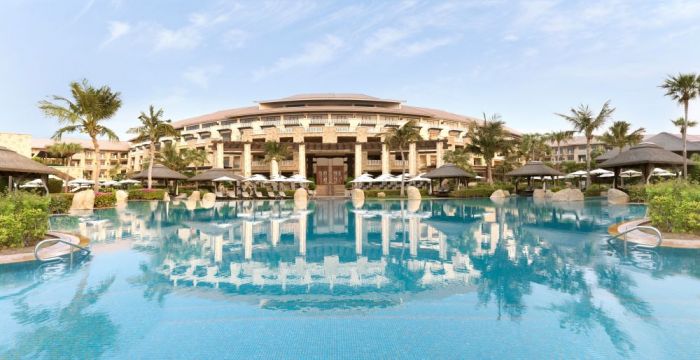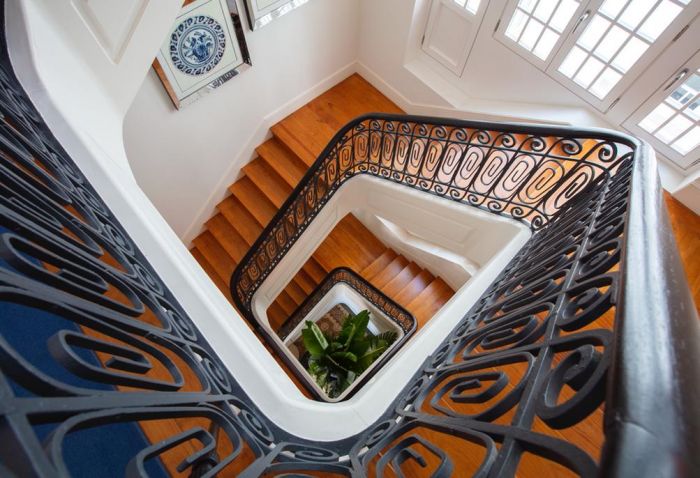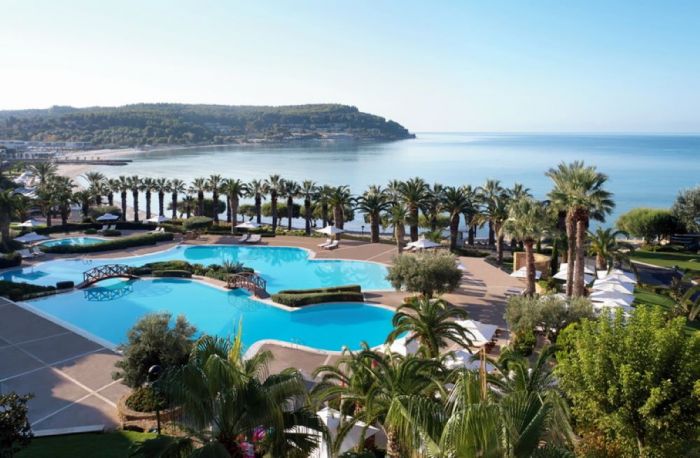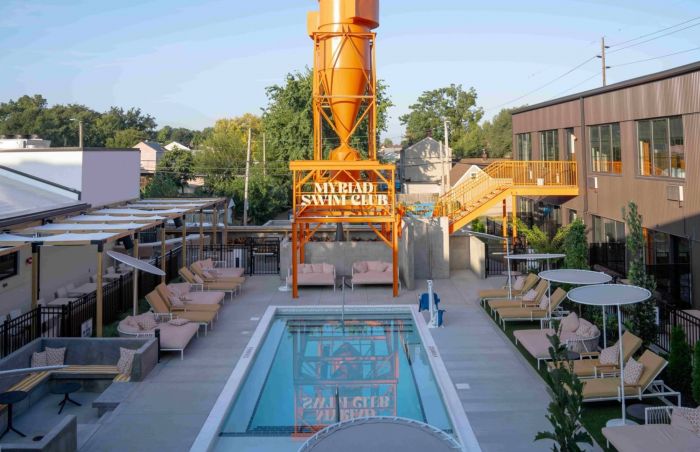
In China’s fast-growing cities, it can be hard to find any traces of the past. But one of the country’s hottest new hotel openings has made its home in a 1,000-year-old temple complex in the heart of Chengdu, preserving a bit of history while helping propel the booming metropolis into the future. The Temple House is the third property from the House Collective by Swire Hotels, the company behind The Opposite House in Beijing and The Upper House in Hong Kong. It opened at the end of July in the heart of the city’s historic core.

The project was designed by MAKE Architects as part of a conservation and redevelopment plan for the 1,000-year-old Daci Temple complex. Guests enter the hotel through a gorgeously restored 100-year-old Chinese courtyard building that dates to the Qing dynasty, with hallmarks of brick construction, stone walkways, intricately-carved wooden accents and svelte bamboo trees framing the entrance. On either side of the walkway are small galleries and parlors featuring contemporary art pieces and an extensive library. The lobby is intimate but open, with staff manning a woven-brass desk resembling a bird’s nest, checking guests in along the sofas by the fireplace.

The hotel’s 100 studios and 42 serviced apartments are housed in two soaring L-shaped glass towers that reflect the city’s quick modernization. However, those gleaming sheaths frame brick façades woven with bronze detailing that pays homage to the region’s classic architecture and traditional weaving industry. Rooms start at nearly 700 square feet and take simplicity of design as their watchword, though they also offer the latest technological trappings including 46-inch Interactive Protocol TVs that you can stream from your Android or Apple device, high-speed Wi-Fi, and portable Bose Bluetooth speakers.

They’re not short on creature comforts either, thanks to plush white-on-white beds, spare but snug sofas and love seats, a complimentary minibar stocked with water, juice, soda and beer (and a few sweet snacks as well), and complimentary espresso, teas and infusions. The enormous bathrooms are kitted-out in sophisticated black stone with bleached wooden flooring, and offer dual vanities, deep soaking tubs, separate walk-in rain showers, as well as bath products by up-and-coming Australian brand Appelles.

Among the hotel’s three restaurants, the most casual is the all-day Temple Café, where guests can come for a Western or Chinese breakfast, simple eats throughout the day and a casual dinner. Just off the hotel’s central courtyard, the Shanghai Art Deco-fabulous Jing Bar was designed, like the other food and beverage outlets, by AvroKO. Here, guests can settle in at the long bar or in semi-private booths to sip cocktails like the Old Boy with soju, Korean blueberry vinegar and an ice sphere. Or share a selection of punch bowls including a variation on the Pimm’s Cup made with Pimm’s No. 1, ginger shrub, sparkling wine, orange and lemon juice, pineapple and strawberries, and a mint garnish.

The hotel’s flagship restaurant is Tivano, one of Chengdu’s few Italian restaurants, and surely its finest. Along with an impressive, Italian-heavy wine list, the menu includes a selection of wood-fired pizzas (from the oven you can see into the open kitchen right from your table), as well as lighter courses such as tender filetto tonnato, and pastas including fluffy gnocchi with asparagus, mushroom and goat cheese.

Set off in another courtyard unto itself, the Tea House feels like a little oasis where guests can sample dozens of traditionally served teas (Sichuan is famous for its tea culture, after all), including one that blends premium green tea leaves with delicate orchid blossoms for a crisp, floral, refreshing taste. The small restaurant here also serves a menu of vegetarian versions of (sometimes spicy!) Sichuan specialties such as marinated black wood-ear mushrooms with sesame oil, and spicy tofu with slow-cooked tea egg, microgreens and chili oil.

Afterwards, make an appointment at the adjoining Mi Xun Spa. There’s a small men’s barbershop where you can get a haircut and a straight-razor shave (along with a glass of whiskey), and a menu of traditional treatments including various facials and massages incorporating Natura Bissé, Themae and Refinery products, among other brands. The hotel also offers a large fitness center and full-length lap pool with natural skylights that are incorporated into the central courtyard lawn.

Of course, no visit to Chengdu is complete without a trip out to the Chengdu Research Base of Giant Panda Breeding, just outside the city to visit its most famous residents. Over 100 of the endangered creatures call it home, and you can spend an entire day wandering through the enclosures and research facilities learning about them and watching them go about their business.

The Temple House is offering a special package just for guests looking for this experience. The Gong Fu Panda package includes a la carte daily breakfast or a traditional Gongfu tea ceremony in the Tea House, a one-way transfer to the Giant Panda Base with two entrance tickets, a panda toy to take home, a complimentary sofa bed in the room, free parking, free Wi-Fi and access to the fitness center and pool. The package is available through December 31, 2015, and starts at RMB 1,888 (USD $295) per night with a two-night stay.














